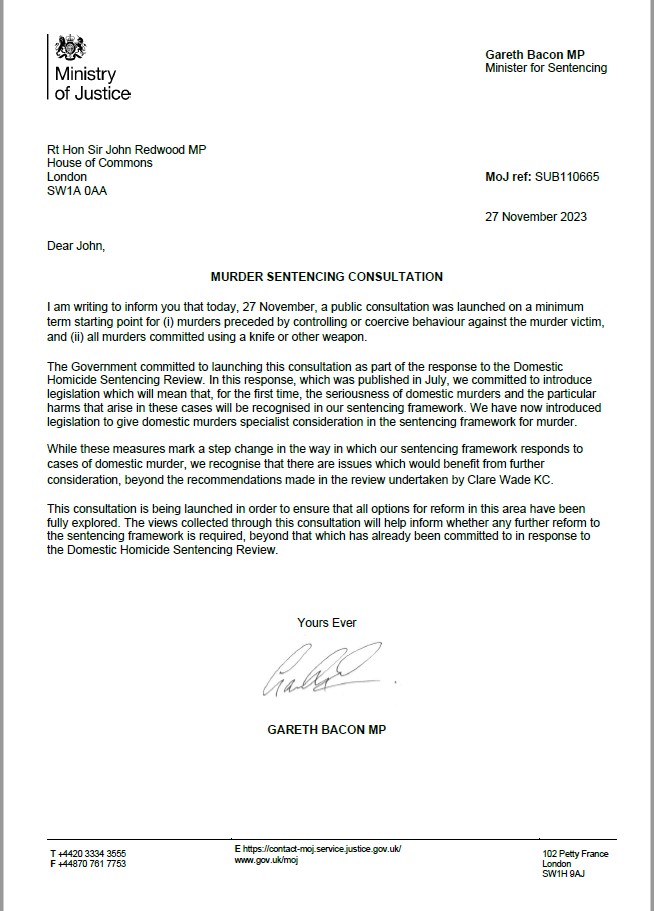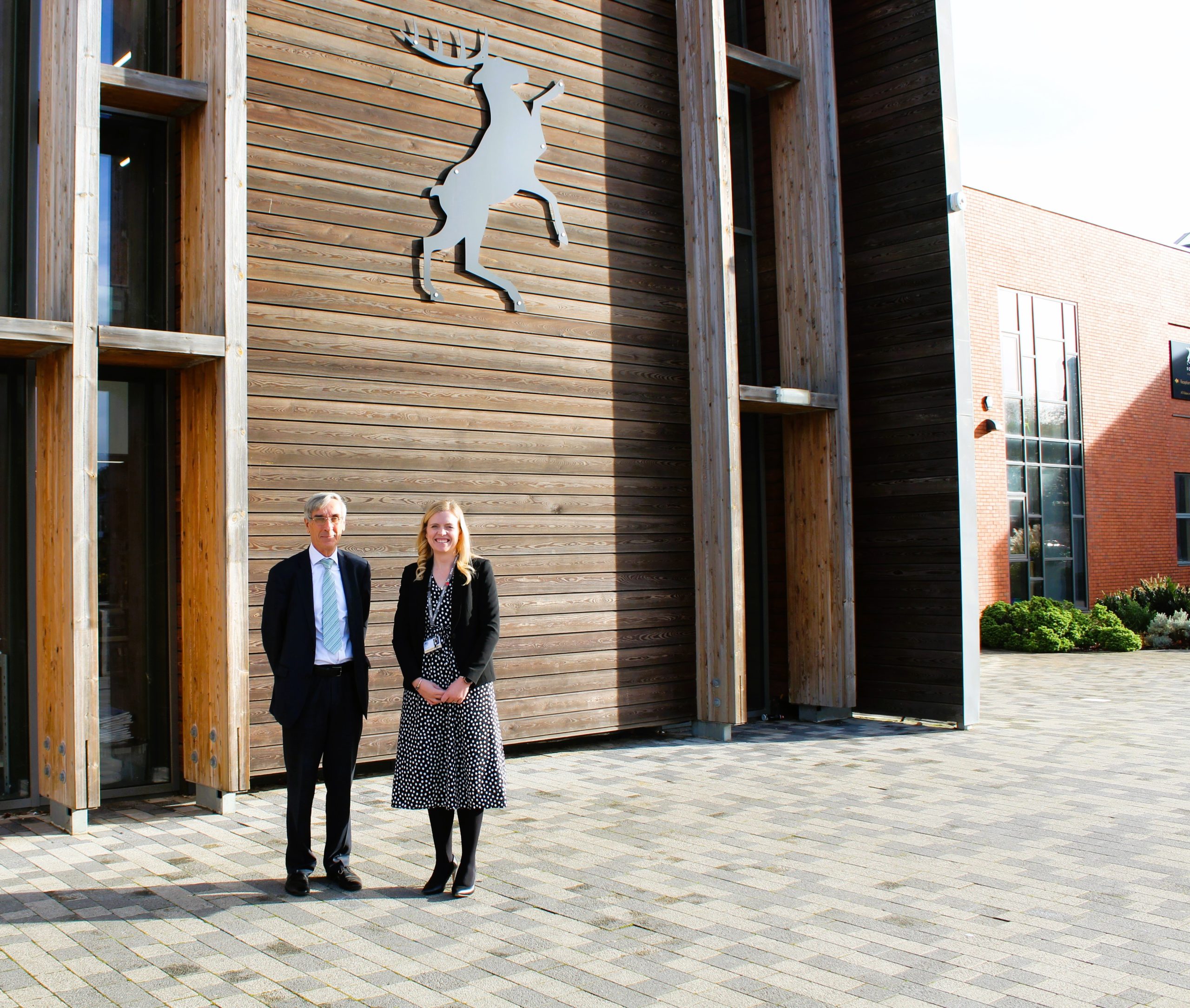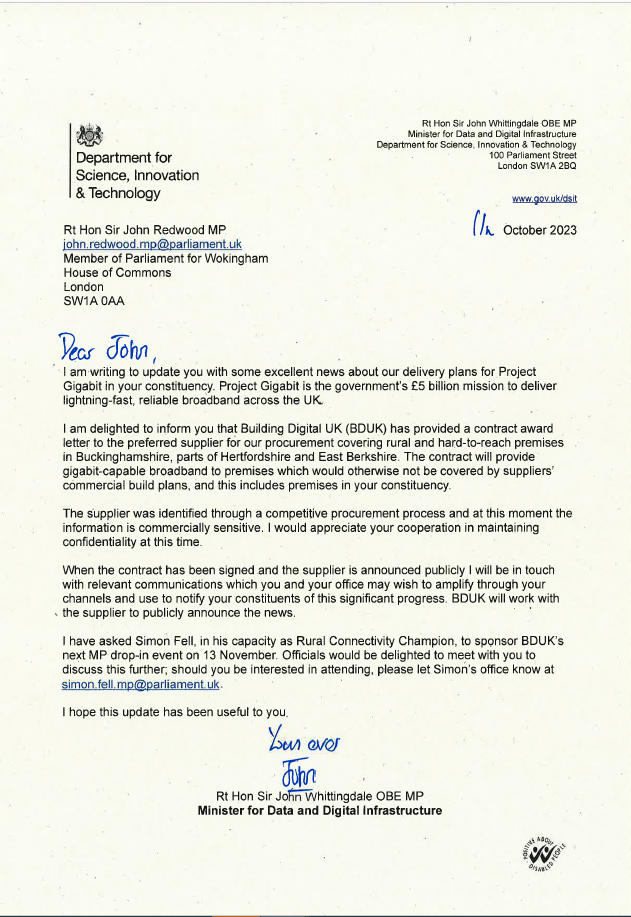John Redwood, (Wok, Cons):
First, I wish to address the question of housing supply in the national planning policy framework, amendment 44 and others. I support the Government in rejecting the Lords amendments—in most cases, those amendments make the Bill worse—but we need greater clarity from the Government about how the national planning policy framework and the definition of needs in any national intervention relate to what is done locally. The Minister has been a clear advocate of more devolved power, and the one power my local community would like is more power to decide how many houses we can fit in and where they could be built. That is not clear yet, and I look forward to further clarification and further documentation.
I am pleased that the five-year supply of land calculation has been amended, because that was causing considerable trouble. Wokingham Borough Council was more than hitting the five-year target, but we were constantly told by inspectors that we were not, because they calculated the numbers in a different, and we thought rather perverse, way. We never got any credit for greatly outperforming the average that we were meant to be building under the local plan, with all the difficulties that were being created by people living on many building sites in the local area.
That brings me on to the amendments and the debate, and the commentary that we have been hearing on the general issue of levelling up—the subject of the Bill—and how that relates to devolved government. I remind all parties in the House who have a fit of enthusiasm for the proposition that more devolved government will naturally lead to levelling up to look at the experience so far. They should understand that there are many occasions on which devolved powers are created or granted when levelling up does not occur or when things even go backwards. I will not argue with the decisions of the many local communities who have voted fairly in a referendum to have various types of devolved government. I am a great supporter of referenda and a great respecter of their results. I am not urging changes to the current complex structure of devolved government, but that should not stop us analysing whether it is working and whether it can be improved within its own terms and in how it operates.
The biggest example of devolved government is the devolved Government of Scotland. It is now a good time to review how well that has been working, because we were told that devolution would boost the Scottish growth rate and improve Scottish public services relative to public services elsewhere. So far this century—the period in which we have experienced devolved government with considerable powers—Scotland has always had considerably more money per head for public services than England, yet the Scottish growth rate has been lower than the English growth rate.
Scotland comes into the House today to demand bigger levelling-up moneys, because clearly more than two decades of Scottish independent government in many areas has not levelled Scotland up yet. We need to ask why that has failed. What was wrong with the conduct of the SNP Government and, before that, were there defects in the Labour-led Government in Scotland? How could future Governments in Scotland use those powers and the considerable sums of money granted to better effect?
What matters is which parts of the country attract most of the private investment. For all the public investment that Governments have put in, it will always be greatly exceeded by the total amount of private sector investment, because in our more free enterprise society, our private sector economy is still larger than the public sector economy, unlike in true socialist or communist states. That private investment is often the driver of many of the better-paid jobs and levelling-up opportunities that can then be created.
I am keen that we get a better balance in where new housing is built not so much because of the impact that I see of too much housing being put up in a hurry in my area, but because I think that more of that investment should go to places that want levelling-up moneys and that need a better balance of development. Those places could do with a lot of the private investment that all too often comes to parts of the country that do not qualify for levelling-up money.
Every time I get a new housing estate in Wokingham, I have to go to a Minister and say, “We need a new primary school.” After we have had half a dozen new housing estates, as we regularly do, I have to go and say, “We need a new secondary school.” Those are big ticket items, and that is big public sector investment that has to go to a part of the country that does not need to be levelled up. More difficult is trying to get money for roads, because we have this strange idea that we can put as many housing estates as we like into a place like Wokingham and magically our existing road network will take it when people buy those houses and practically all of them have cars; well, it cannot. We then need bypasses, extra road capacity or extra train capacity. We need the utilities to put in more water and electricity capacity, otherwise we have the embarrassment that we have lovely new houses, but it is difficult to hitch them up to a grid that works. There are great pressures and huge amounts of consequential investment from the new housing that comes into a congested area of the country that does not qualify for levelling up.
I urge all parties to do a little more thinking about how we level up areas and to ask why it is that so many people wish to visit huge amounts of private sector housing investment in places that are levelled up, while starving the rest of the country of it, when it is often the motor of the levelling up that they seek.


